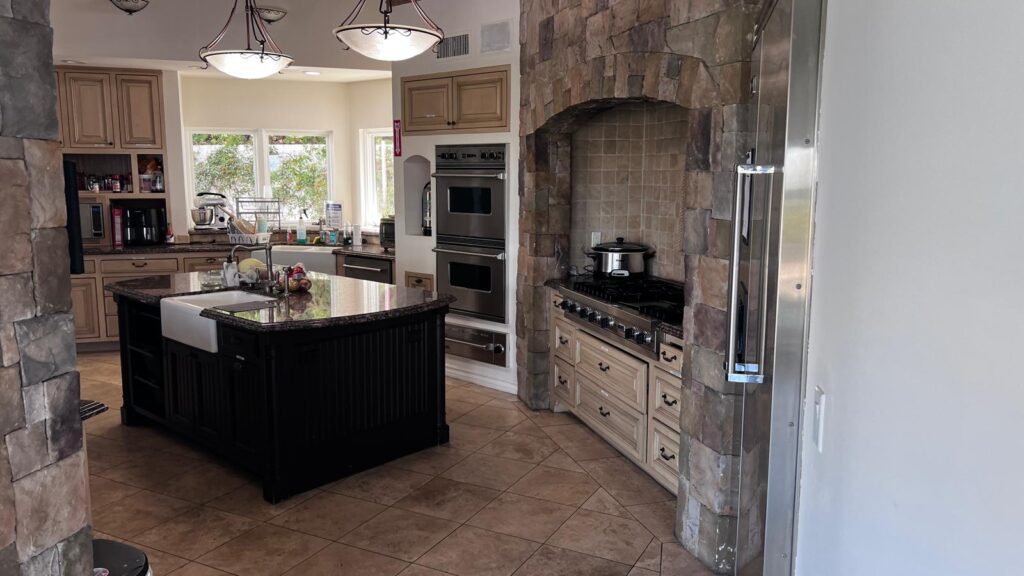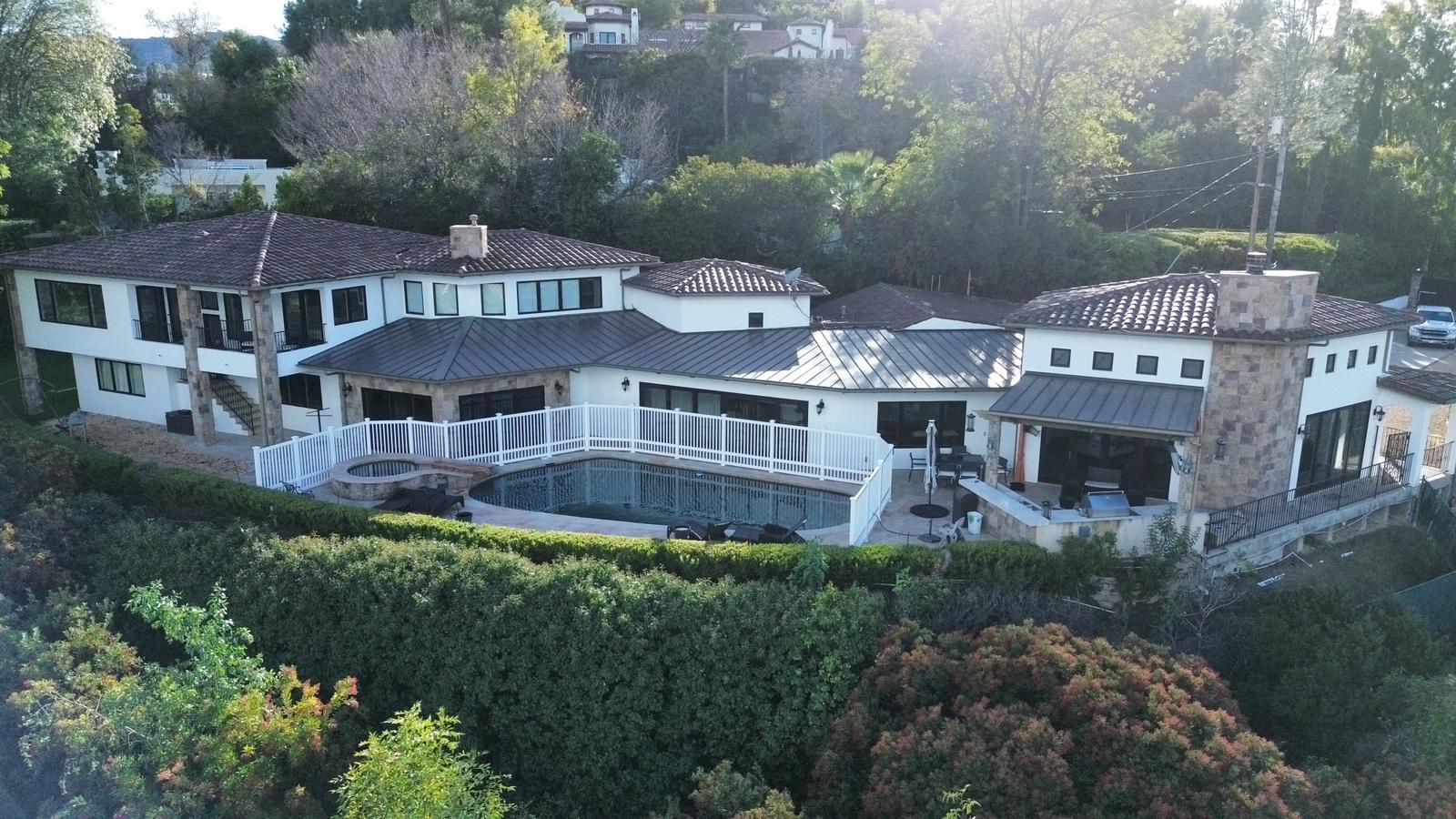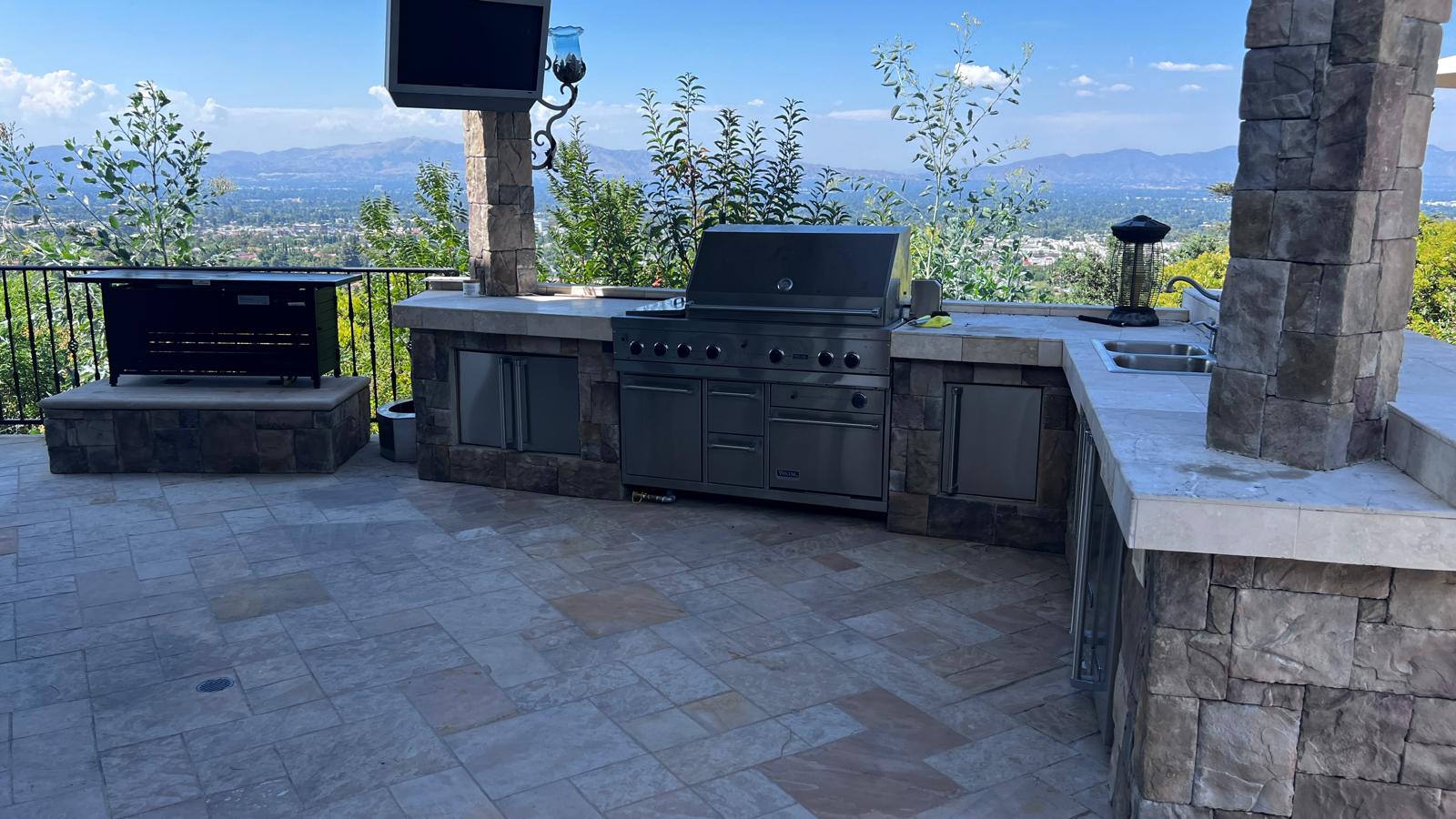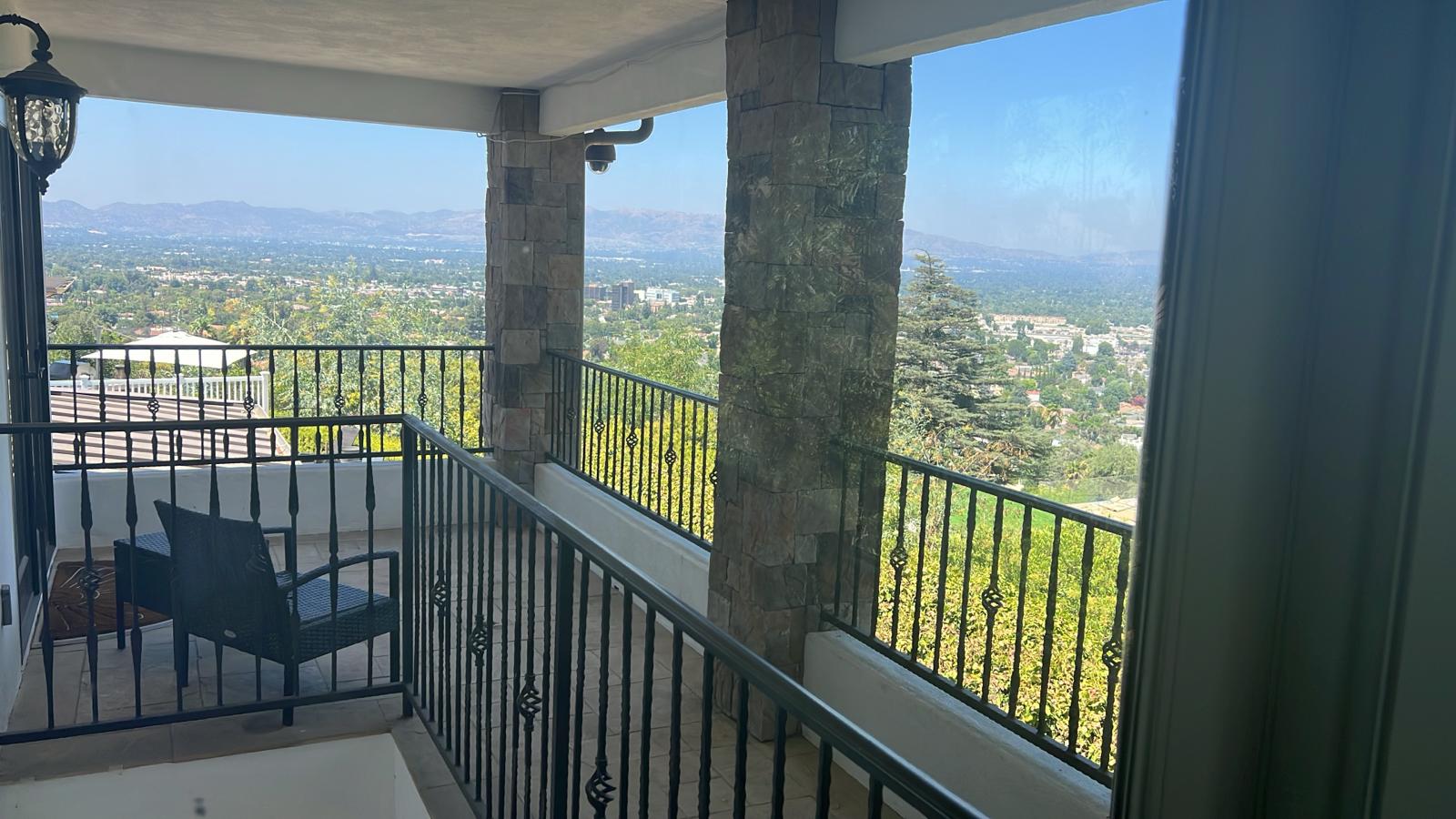When someone you love is struggling with addiction, or when you’re facing substance dependency yourself, the journey toward recovery often begins with a single crucial question: Where do I start? After three decades working in addiction medicine and mental health treatment, I can tell you with certainty that the answer begins with detoxification—and choosing the right detox program in Encino can make all the difference between lasting recovery and another cycle of relapse.
Encino, nestled in the San Fernando Valley, has emerged as a premier destination for addiction treatment services. The community offers a unique combination of world-class medical facilities, experienced treatment professionals, and a supportive environment that promotes healing. For families searching for detox programs in Encino, understanding what distinguishes exceptional care from adequate care becomes essential to making informed decisions during what is often the most vulnerable time in someone’s life.
Understanding Drug and Alcohol Detox Programs in Encino

A drug and alcohol detox program represents the medically supervised process of eliminating toxic substances from the body while managing the uncomfortable and sometimes dangerous withdrawal symptoms that emerge when someone stops using addictive substances. The fundamental goal extends beyond simply getting substances out of your system—it encompasses stabilizing your physical health, ensuring your safety during withdrawal, and preparing your mind and body for the therapeutic work that follows in comprehensive addiction treatment.
At facilities like Grand View Villas Recovery, detoxification serves as the critical foundation upon which lasting recovery is built. The human body becomes remarkably adaptive to regular substance use, adjusting its chemistry to function with drugs or alcohol present. When these substances are suddenly removed, the body must recalibrate—a process that produces withdrawal symptoms ranging from mild discomfort to life-threatening complications. Professional Encino addiction treatment centers provide the medical expertise, monitoring, and intervention necessary to navigate this challenging transition safely.
How Long Does Detox Take and What to Expect
A typical detox program in Encino generally lasts between three to ten days, though some individuals may require extended care depending on several critical factors. The substance involved plays the primary role in determining detox duration. Alcohol detox in Encino typically peaks within 48 to 72 hours but can produce symptoms for up to two weeks. Opioid detox in Encino follows a different timeline, with acute withdrawal from short-acting opioids peaking around three days, while long-acting opioids may take seven to ten days. Benzodiazepine withdrawal presents one of the most prolonged detox processes, sometimes requiring several weeks of careful tapering.
Beyond the substance itself, individual factors significantly influence detox duration. Someone who has used substances heavily for many years will typically experience a longer, more intense withdrawal process compared to someone with a shorter history of use. Your overall physical health, age, metabolism, and whether you’ve been using multiple substances simultaneously all affect how long your body needs to stabilize.
Medical Detox Versus Social Detox: Understanding the Critical Difference
The distinction between medical detox and social detox represents one of the most important concepts for anyone considering substance abuse treatment in Encino to understand. Medical detox involves comprehensive supervision provided by licensed physicians, nurses, and clinical staff trained specifically in addiction medicine. This approach includes 24-hour monitoring of vital signs, administration of FDA-approved medications to manage withdrawal symptoms, and immediate intervention capability should complications arise.
The medically supervised detox programs in Los Angeles that employ medical detox protocols create an environment where your body can heal under expert care. Physicians may prescribe medications like benzodiazepines for alcohol withdrawal, buprenorphine or methadone for opioid dependence, or other supportive medications to address specific symptoms.
Social detox, by contrast, provides a supportive, substance-free environment with peer support and basic monitoring, but without intensive medical intervention. This approach might be appropriate for mild dependence, but it lacks the medical resources necessary to safely manage most moderate to severe addictions.
Here’s what concerns me after all these years in the field: I’ve seen too many people attempt social detox or at-home detox for substances that truly required medical supervision. Alcohol withdrawal can be fatal. Benzodiazepine withdrawal can cause seizures days after the last dose. Professional withdrawal management in Encino eliminates these risks.
What Types of Addictions Do Encino Detox Centers Treat?
Comprehensive detox facilities in Encino address the full spectrum of substance use disorders, recognizing that addiction doesn’t discriminate and effective treatment requires expertise across multiple substance categories.
Alcohol Withdrawal Treatment
Alcohol withdrawal demands particular medical attention. Symptoms begin as early as six hours after the last drink and can progress from tremors and anxiety to hallucinations, seizures, and in severe cases, delirium tremens—a potentially fatal condition requiring immediate medical intervention. Specialized alcohol detox services in Encino utilize proven protocols involving benzodiazepine medications, careful hydration management, nutritional support, and continuous monitoring.
Opioid Detox
Whether someone is dependent on prescription painkillers like oxycodone, or has progressed to heroin or fentanyl use, professional opioid detox provides both safety and significantly improved outcomes. Modern opioid detox employs medications like buprenorphine (Suboxone) or methadone to prevent withdrawal symptoms while blocking euphoric effects. This medication-assisted approach makes opioid detox far more tolerable and increases the likelihood of completing treatment.
Benzodiazepine and Stimulant Detox
Benzodiazepines like Xanax, Valium, and Ativan must be tapered gradually to prevent seizures and other serious complications. While stimulant withdrawal (cocaine, methamphetamine) doesn’t typically produce life-threatening physical symptoms, the psychological withdrawal can be profoundly challenging, making medical supervision valuable for improving comfort and retention in treatment.
Polysubstance Addiction
Many people entering Encino drug and alcohol rehab use multiple substances simultaneously, creating complex detox scenarios that require experienced clinical judgment and careful coordination of treatment protocols.
Is Detox the Same as Rehab?
One of the most important distinctions I emphasize with families and clients is this: detox is not rehab. Completing detox represents a crucial first step, but it is only the beginning of the recovery journey. Detoxification addresses physical dependence—it clears substances from your body and stabilizes your physical health. However, addiction encompasses psychological, behavioral, emotional, and social dimensions that require comprehensive therapeutic intervention.
Research from the National Institute on Drug Abuse consistently demonstrates that integrated treatment—detox followed immediately by evidence-based rehabilitation—produces dramatically better outcomes than detox alone. The transition from detox to residential treatment should be seamless, allowing you to move directly from medical stabilization into therapeutic work addressing the root causes of addiction, developing coping skills, and building a sustainable recovery foundation.
Twenty-Four-Seven Medical Supervision and Safety
When families ask whether medical supervision is available around the clock during detox, the answer at reputable inpatient detox in Encino facilities is an unequivocal yes—continuous medical supervision represents the standard of care, not an optional upgrade.
During detox, vital signs like blood pressure, heart rate, and temperature can fluctuate unpredictably. Symptoms can escalate quickly. Complications can emerge at any hour. Inpatient residential detox programs maintain nursing staff on-site 24 hours daily, with physicians available for consultation and able to respond rapidly if needed.
The patient-to-staff ratio at quality facilities typically ranges from four to six clients per nurse during day shifts. This level of supervision provides emergency response capability, precise medication administration, identification of subtle changes indicating complications, and reassurance during moments of distress.
Why Professional Detox Matters: The Dangers of Home Detox
Is it safe to detox at home? For most people seeking treatment, home detox presents unacceptable risks. Medical complications represent the primary concern. Alcohol and benzodiazepine withdrawal can be fatal—this isn’t an exaggeration. Seizures can occur suddenly. Delirium tremens can develop days into withdrawal. Without immediate medical intervention, these conditions can result in permanent injury or death.
Beyond medical safety, home detox fails for practical reasons. You’re surrounded by triggers, have access to substances if cravings become overwhelming, and lack the structure and support that professional treatment provides. Professional drug detox in Encino, California eliminates these obstacles while maximizing your chances of successfully completing detox and transitioning to rehabilitation.
Medication-Assisted Treatment During Detox
Will you be given medication to help manage withdrawal? In most cases, yes—appropriate medication is considered standard practice for managing moderate to severe withdrawal. The specific medications depend on what substances you’re withdrawing from and your individual medical history.
For alcohol detox, benzodiazepines are administered on a tapering schedule. Opioid detox has been revolutionized by buprenorphine products like Suboxone, which prevent withdrawal and cravings without producing euphoria. Additional comfort medications address symptoms like nausea, muscle aches, insomnia, and anxiety.
The goal is never to substitute one drug for another. Rather, evidence-based medication protocols reduce suffering, prevent medical complications, and dramatically improve the likelihood of completing detox and engaging in ongoing treatment.
Dual Diagnosis: Addressing Co-Occurring Mental Health Conditions
Approximately 50 percent of people with severe mental illness also experience substance use disorders. Many initially use substances to self-medicate symptoms of depression, anxiety, PTSD, or bipolar disorder. Professional dual diagnosis treatment in Encino requires integrated care where addiction specialists and mental health professionals work collaboratively from day one.
During intake, clinicians conduct comprehensive psychiatric evaluations to identify existing mental health conditions. Once your body has stabilized, typically within three to seven days of detox, psychiatric providers can make accurate diagnoses and develop appropriate medication regimens. Continuing into residential treatment, you’ll receive integrated therapy addressing both addiction and mental health conditions simultaneously, because treating only one while ignoring the other virtually guarantees relapse.
Inpatient Versus Outpatient Detox Options
Residential detox programs in LA require you to live at the treatment facility 24 hours daily throughout the detox process. This represents the gold standard for moderate to severe addiction. The advantages are substantial: removal from triggering environments, continuous medical supervision, elimination of substance access, peer support, and complete focus on recovery.
Outpatient detox near Encino allows you to live at home while attending appointments for monitoring and medication. This might be appropriate for mild dependence with strong family support and safe home environments. However, outpatient detox has significant limitations—continued trigger exposure, intermittent supervision, and easier treatment abandonment when discomfort increases.
For anyone with moderate to severe addiction, previous failed attempts, unstable living situations, or co-occurring mental health conditions, inpatient detox isn’t just preferable—it’s necessary for safety and success.
Luxury Treatment: Environment Matters for Healing

Luxury detox in Encino typically features private rooms with ensuite bathrooms, chef-prepared meals, peaceful surroundings, and complementary therapies like massage, acupuncture, yoga, and meditation. Some question whether these amenities are necessary or simply indulgent.
Here’s my perspective: addiction has likely stolen dignity, comfort, and quality of life. Restoring these elements as part of healing isn’t superficial—it’s therapeutic. When someone feels respected, comfortable, and cared for, they’re more likely to engage fully in treatment and develop self-worth essential for recovery. Luxury residential treatment in California facilities can provide discrete, comfortable settings while maintaining rigorous clinical standards.
The Admission Process and What to Expect
The intake process at detoxification centers in Encino, CA typically begins with an initial phone call where admissions staff gather basic information about substance use history, medical background, and insurance coverage. If appropriate, admission can often occur the same day.
Upon arrival, clinical staff conduct comprehensive assessments including detailed substance use history, medical examination, psychiatric evaluation, and individualized treatment plan development. You’ll provide information about substances used, quantities, frequencies, and when you last used—accurate information is critical for safety.
Medical staff will conduct physical examinations, check vital signs, and potentially order laboratory work. You’ll receive information about facility rules, daily schedules, visitation policies, and what to expect during detox. Staff will show you to your room and answer questions. The initial hours can feel overwhelming, but professional facilities create environments where you feel safe, supported, and hopeful.
Location, Accessibility, and Family Involvement
Encino recovery centers are located throughout this residential community in the San Fernando Valley, providing peaceful environments conducive to healing. The community sits near major highways including the 101 and 405 freeways, making facilities accessible from throughout Southern California. Proximity to both Hollywood Burbank Airport and Los Angeles International Airport provides convenient travel options for those coming from other states.
Can family members visit during treatment? During acute detox (typically the first three to seven days), most facilities restrict visitation to allow focus on physical stabilization. Phone communication usually begins within the first days. Once someone transitions to residential treatment, family involvement increases dramatically through therapy sessions, educational programs, and supervised visits.
Understanding Costs and Insurance Coverage
Without insurance, detox programs in the San Fernando Valley typically cost between $1,000 and $2,500 per day, with total costs ranging from $3,000 to $25,000 depending on length of stay and required intervention. These numbers reflect 24-hour medical supervision, physician oversight, nursing care, medication, and a safe environment.
Most reputable facilities are credentialed with major insurance providers including PPO plans from Blue Cross Blue Shield, Aetna, Cigna, and United Healthcare. HMO plans provide less flexibility, though some centers participate with certain HMOs. Medi-Cal covers detox and addiction treatment, though not all facilities accept it due to reimbursement concerns.
Insurance verification specialists contact your provider to determine exact benefits, out-of-pocket costs, deductibles, co-insurance, and whether prior authorization is required. Quality facilities complete verification before admission so you understand financial obligations without surprise bills.
For those without insurance, Los Angeles County operates or funds detox facilities providing services on sliding fee scales, with some services available at no cost to qualifying individuals. California’s expanded Medi-Cal program covers addiction treatment for many previously uninsured people. Some private facilities offer scholarship funds or payment plans.
Encino mental health and addiction services accept multiple payment methods including major credit cards, debit cards, checks, bank transfers, and healthcare financing options like CareCredit. Financial concerns should never prevent someone from accessing needed detox care when ready for help.
Frequently Asked Questions About Detox Programs in Encino
What is a drug and alcohol detox program in Encino, and what is its goal?
A drug and alcohol detox program is a medically supervised process that safely removes toxic substances from your body while managing withdrawal symptoms. The primary goals include stabilizing physical health, preventing dangerous complications, minimizing discomfort, and preparing you for comprehensive addiction treatment addressing psychological aspects of dependence.
How long does a typical detox program in Encino last?
Most detox programs last between three to ten days, depending on the substance, severity of dependence, length of use, and individual health factors. Alcohol and short-acting opioid detox typically takes five to seven days, while benzodiazepine detox may require several weeks of gradual tapering.
What is the difference between medical detox and social detox?
Medical detox involves 24/7 medical supervision by physicians and nurses who monitor vitals, administer medications, and intervene if complications arise. Social detox provides peer support and a substance-free environment but lacks intensive medical intervention, making it appropriate only for very mild dependencies.
What types of addictions do Encino detox centers treat?
Comprehensive facilities treat alcohol addiction, opioid dependence (prescription painkillers, heroin, fentanyl), benzodiazepine addiction, stimulant dependence (cocaine, methamphetamine), prescription medication misuse, and polysubstance addiction where multiple substances are used simultaneously.
Is detox the same as rehab, or is it just the first step?
Detox is only the first step in comprehensive addiction treatment. Detox addresses physical dependence and stabilizes your body, but addiction involves psychological, behavioral, and emotional dimensions requiring therapeutic intervention during rehabilitation. Research shows detox alone results in high relapse rates without subsequent treatment.
Is medical supervision available 24/7 during the detox process?
Yes, reputable inpatient detox programs provide continuous 24-hour medical supervision seven days weekly. Licensed nurses remain on-site around the clock to monitor vitals, administer medications, respond to complications, and provide support.
Is it safe to detox at home, or should I choose a professional program in Encino?
For most moderate to severe addictions, home detox presents unacceptable risks. Alcohol and benzodiazepine withdrawal can be fatal without medical intervention. Professional detox eliminates medical risks, removes triggering environments, provides symptom management, and significantly increases completion rates.
Will I be given medication to help manage withdrawal symptoms?
Yes, evidence-based detox protocols typically include appropriate medications to manage symptoms, prevent complications, and increase comfort. Specific medications depend on withdrawal substances and include benzodiazepines for alcohol, buprenorphine for opioids, and various comfort medications for symptoms like nausea and insomnia.
How do you handle co-occurring mental health conditions during detox?
Quality facilities provide integrated dual diagnosis treatment from day one. Comprehensive psychiatric assessments identify existing conditions like depression, anxiety, or PTSD. Once medically stabilized, psychiatric providers diagnose conditions accurately and implement appropriate treatment including therapy and medication.
What is the patient-to-staff ratio at detox facilities?
Reputable programs typically maintain ratios of four to six clients per nurse during day shifts, with slightly higher ratios overnight. Ratios adjust based on client acuity—facilities treating people with complex medical needs maintain lower ratios ensuring adequate attention and safety.
Are detox programs in Encino inpatient or outpatient?
Encino offers both inpatient residential detox (living at the facility 24/7) and outpatient detox (attending appointments while living at home). Inpatient detox is recommended for moderate to severe addiction and provides continuous supervision, removal from triggers, and peer support.
What amenities are offered at detox facilities?
Standard programs provide clean, safe accommodations with basic necessities. Luxury facilities offer private rooms with ensuite bathrooms, chef-prepared meals, comfortable common spaces, complementary therapies like massage and yoga, and higher staff-to-client ratios allowing individualized attention.
What is the admission process like for detox programs?
The process begins with a phone call for preliminary information and insurance verification. Admission often occurs the same day. Upon arrival, you undergo comprehensive assessments including substance use history, medical examination, psychiatric evaluation, and individualized treatment plan development.
Where are detox centers in Encino specifically located?
Facilities are located throughout Encino’s residential neighborhoods near major highways, making them accessible from throughout Southern California. Exact addresses typically aren’t published online for privacy reasons, but admissions coordinators provide detailed location information once you’ve decided to pursue treatment.
Can family members visit during detox and recovery?
During acute detox (first three to seven days), most facilities restrict visitation allowing focus on physical stabilization. Phone contact usually begins within the first days. Once transitioning to residential treatment, family involvement increases through therapy sessions, educational programs, and supervised visits.
How much does detox in Encino cost without insurance?
Without insurance, detox typically costs $1,000 to $2,500 per day, with total costs ranging from $3,000 to $25,000 depending on length of stay, required intervention, and facility amenities. These costs reflect 24-hour medical supervision, physician oversight, nursing care, medication, and meals.
Do Encino detox programs accept my health insurance?
Most reputable facilities are credentialed with major insurance providers including PPO plans from Blue Cross Blue Shield, Aetna, Cigna, and United Healthcare. Some participate with HMO plans, and many accept Medi-Cal. Insurance coverage varies by plan, so facilities conduct verification determining exact benefits and costs.
Can facilities verify insurance benefits and explain costs?
Yes, quality facilities employ insurance verification specialists who contact your provider before admission determining available benefits, deductibles, co-insurance, whether the facility is in-network, and estimated out-of-pocket costs, eliminating surprise bills.
Are there low-cost or free detox options near Encino?
Los Angeles County operates or funds detox facilities providing services on sliding fee scales based on income, with some services available at no cost. California’s expanded Medi-Cal covers addiction treatment for many people. Some private facilities offer scholarship funds or financial assistance.
What payment methods do detox programs accept?
Most facilities accept major credit cards, debit cards, personal or cashier’s checks, bank transfers, and healthcare financing options like CareCredit offering payment plans. Many facilities work with families creating manageable payment plans for out-of-pocket costs.
Taking the Next Step Toward Recovery at Grand View Villas
If you’ve read this far, you’re clearly serious about understanding detox and potentially pursuing treatment. This commitment to learning represents an important step toward recovery. Addiction thrives in isolation and secrecy. Recovery flourishes in connection, honesty, and support.
You deserve recovery. You deserve health, happiness, and a life free from the bondage of addiction. Regardless of what you’ve done while addicted, you have inherent worth and the capacity to change your life starting today.
The path forward begins with a single action. Contact Grand View Villas Recovery Center to discuss your situation, ask questions, and determine whether you’re ready for this crucial step. Our experienced medical team provides 24/7 supervision, evidence-based protocols, and compassionate care in a comfortable, therapeutic environment.
Recovery rarely follows a straight line, but professional detox provides the essential foundation making lasting recovery possible. Don’t wait for perfect circumstances or absolute certainty. What you need is willingness—to try something different, accept help, and imagine life could be better than today.
If you or a loved one is struggling with addiction, contact Grand View Villas Recovery Center in Encino, CA today. Our comprehensive detox and treatment services support your journey toward lasting recovery. Visit grandviewvillasrecoverycenter.com or call our confidential helpline. Recovery is possible, and we’re here to help you achieve it.





